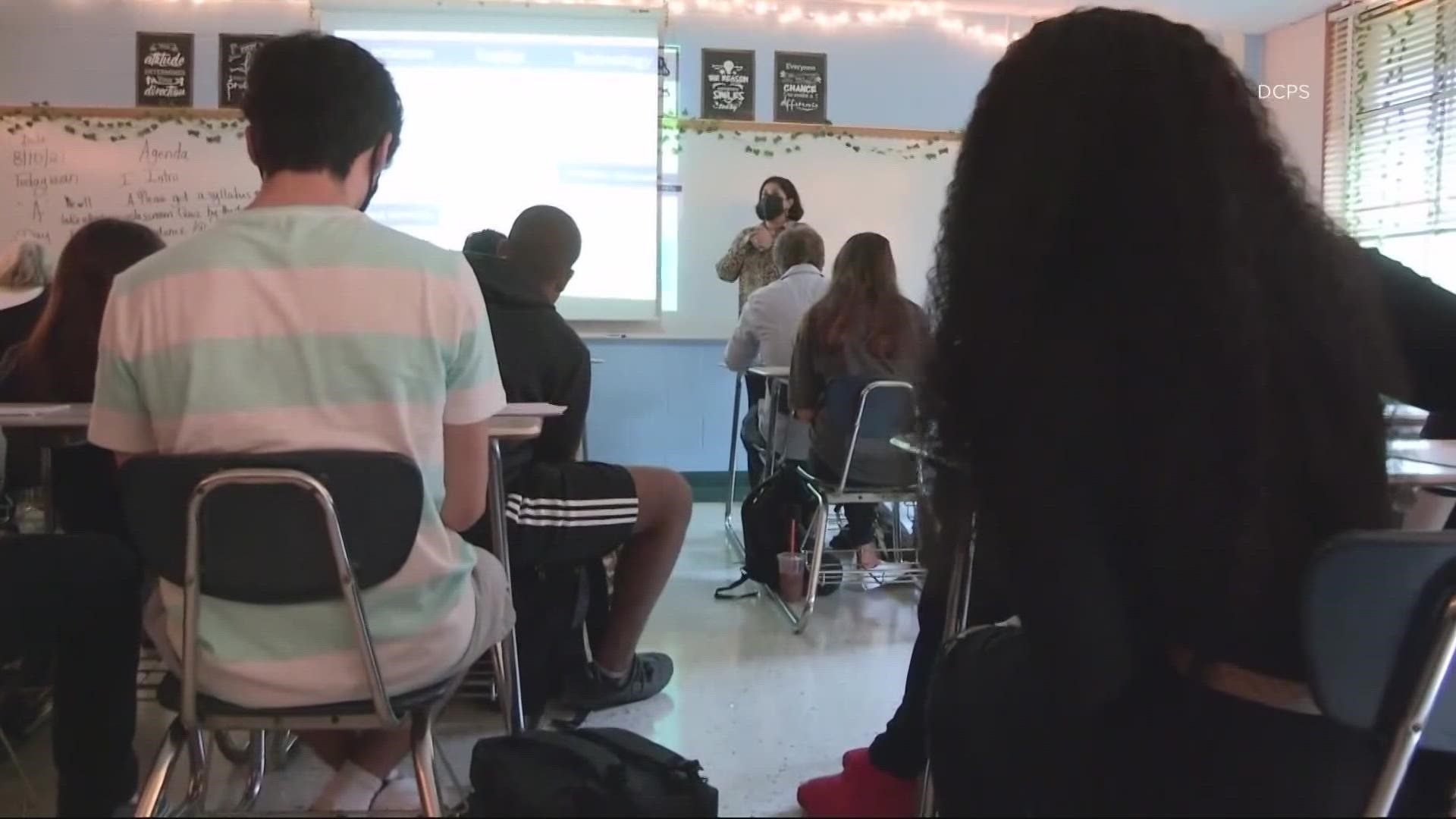JACKSONVILLE, Fla. — Florida teachers are navigating red tape as they remove books from their classrooms, fearing a felony charge.
A new Florida law requires all books in a school to be reviewed and later put into a database. Teachers tell First Coast News they're incredibly worried and they say the law is vague. Some teachers are removing all books from their shelves for fear of risking jail time.
"It's kind of just a rough situation to be in when your freedom is on the line and nobody wants a felony for just trying to teach," one educator told First Coast News.
This educator and several others want to be anonymous because they're concerned about backlash for their schools. However, they want people to know what's happening.
School districts are reviewing the contents of books in school libraries and classrooms; in the meantime, school districts are instructing teachers to get rid of any books that could be questionable under the new Florida law.
"Teachers have said that their hearts are breaking because they've had to cover up their books or remove their books," said Chris Guerrieri, an educator in Duval County for the last 21 years.
The Duval County Public School district states the Florida Department of Education has trained them to “err on the side of caution” when deciding if a book is appropriate. In an article by the school district sent to First Coast News when we asked questions, educators are reminded violating the law is the third-degree felony distributing harmful material to minors.
"Most people are concerned with how vague it is with regard to the material," the first educator said. "Whether or not it's on the line, is it crossing the line? Or are they just not all the way certain exactly what is against the law?"
All books are being reviewed by a certified media specialist in search of discrimination, instruction on sexual orientation or gender identity in kindergarten through third grade books and pornography. The first educator believes Black history is on the chopping block.
"All of the Black history material seems as if it's on the spectrum," the educator said. "With regards to just when you talk about slavery and just all Black history seems to be in question at this point."
Another educator calls the situation heartbreaking and believes it's unrealistic the books will be catalogued in a timely fashion. This educator, who also wants to be anonymous, writes: "I have over 1,000 books in my room, representing viewpoints and experiences from every walk of life. I feel a lack of trust in my professional judgement to offer appropriate material to students."
School districts in other counties are also taking steps to make sure they comply with the new law. St. Johns County has a list of nearly 40 books teachers are instructed to remove from their classrooms until they're reviewed. School officials in Clay County say teachers have not yet been asked to remove any titles because the law is not effective until July 1.
"As an educator it's extremely daunting, to say the least, knowing that your freedom, your income, is all in jeopardy or at risk all of a sudden," the first educator said. "I think that the lawmakers and us as voters just have to be mindful of who we're putting in office."

